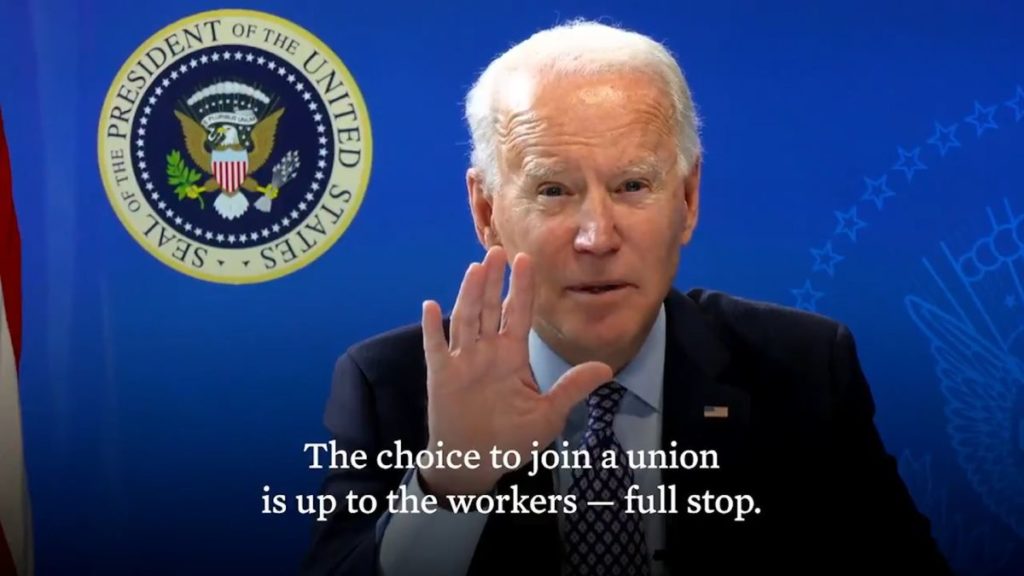Labor Law Reform

I have an op-ed in today’s New York Times (wow, anyone can get published in major newspapers these days!) about how one of the lessons of the Amazon defeat is the desperate need for labor law reform. That of course requires ending the filibuster and I’m able to call out some centrist Democrats too.
Amazon pulled out the same playbook that employers have used since the 1980s: hire an expensive anti-union law firm, shower employees with anti-union literature, force them to sit through anti-union meetings and bombard them with messages about union dues. This is all perfectly legal under a labor-law regime captured by corporations.
The structure of American labor law dates to the 1930s, when the Great Depression created a surge of worker militancy. After decades of government allying with employers to crush unions, even using the military to break strikes, the Roosevelt administration made the federal government a neutral party that would require employers to accept a union if workers voted to have one.
This was the fundamental principle of the National Labor Relations Act in 1935, which created the National Labor Relations Board to adjudicate cases. The Fair Labor Standards Act of 1938 built upon this to legislate the federal minimum wage, the eight-hour workday and overtime pay and a ban on most child labor.
So it’s been 83 years since we passed comprehensive labor law that helped workers win power. In that time, employers have managed to take control over the union election process. A highly partisan National Labor Relations Board swings wildly in its decisions, making it impossible to carry out labor policy in a consistent way. Union after union has nearly given up on the expensive and time-consuming process of organizing single workplaces.
Even had the union won the vote, Amazon would likely have slowed the process of contract negotiations to a crawl, which can delay an agreement; many companies are able to defeat the union during this process. Winning a first contract now requires a union campaign as intensive as the initial vote.
Of course, we actually have a solution here.
This problem has a very clear solution. The Protecting the Right to Organize Act has become a top priority for Democrats who recognize the importance of unions to their coalition.
It would make many of Amazon’s tactics in Bessemer illegal. The PRO Act would bar mandatory anti-union meetings and other forms of employer interference. Employees could cast their ballot outside of the workplace. It would allow newly formed union locals to go to mediation to get their first contract.
It would also effectively overturn right-to-work laws that allow employees to opt of a union, giving the union the right to collect dues from nonmembers. Perhaps most important, it establishes financial penalties for companies who violate the law.
The PRO Act passed the House with near unanimity from Democrats as well as support from a few Republicans. However, the reality of the filibuster means there is almost no chance the PRO Act passes the Senate. So long as Republicans unite in opposition — which, despite anti-corporate rhetorical gestures from the likes of Mitch McConnell, they almost certainly will — it will never come to a vote. Unless moderate Democrats agree to eliminate or reform the filibuster, they are as responsible for this era of corporate domination over workers as their Republican colleagues.
Well, I’m sure Comrade Hawley will help break the filibuster to push forward some populism.


